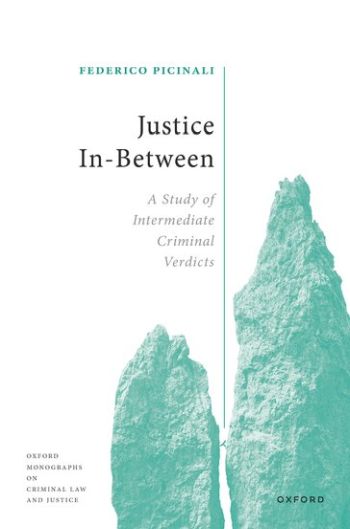
Criminal trials in England and Wales are characterised by a simple 'binary' system of verdicts with a single evidential threshold, or standard of proof. If the standard is met, the verdict is 'guilty', the defendant is convicted, and punishment is permitted. If the standard is not met, the verdict is 'not-guilty', the defendant is acquitted, and punishment is forbidden. There is no middle ground between the verdict of 'not-guilty' and that of 'guilty'. An intermediate verdict represents such middle ground, intermediate between acquittal and conviction both in terms of the strength of the incriminating evidence that is needed to warrant the verdict and in terms of the severity of the consequences that the verdict may produce for the defendant.
This monograph will show that one cannot investigate the choice between the binary and the intermediate models in isolation from the substantive question as to why we punish. Theories of punishment have to address the problem of empirical uncertainty, which includes the choice between the two models of the verdict system. Indeed, empirical uncertainty is not just a problem for theories of punishment: it also concerns any moral or practical theory.
Justice In-Between is a study of intermediate criminal verdicts and advances a novel justification of such controversial devices with the aim to produce a consensus amongst scholars subscribing to different theories of punishment. Building on current philosophical debates, Picinali studies the historical and extant examples of intermediate verdicts and engages with the debates that have accompanied them to show that, under any of the main theories of punishment, decision theory can be used to address effectively the problem of empirical uncertainty.